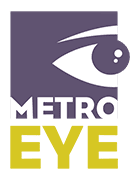According to the FDA, well over half a million people a year have LASIK (laser in-situ keratomileusis) surgery performed as a means of correcting a vision defect. Perhaps you’ve even considered ditching your glasses or contacts in favor of this more permanent, revolutionary solution. Here are 5 ways to really determine if LASIK is right for you:
1. You’re SUPER motivated!
Even though LASIK is low risk, the procedure is still surgical and should be taken seriously. Like any surgery, the preparation and recovery process can feel fairly intense. Prior to surgery, the FDA requires that you remove soft contacts for 2 weeks (3 weeks for hard contacts). This represents minimum times and in reality it could be longer depending on the condition of your cornea. After surgery, you may experience discomfort for the first 24-48 hours and it can take as long as 6 months for vision to fully stabilize following the procedure. Also, since LASIK is an elective procedure, few insurance companies will cover it in their plans. This means you’ll be paying out of pocket. Costs can vary from $1,000 – $2,500 per eye.
2. You have healthy eyes.
Seems counterintuitive, right? “If my eyes were healthy, I wouldn’t need LASIK, right?” Not exactly. There is a difference between poor vision and misshapen, unhealthy eyes. A fluctuating prescription, persistent dry eyes, cataracts, or overly thin cornea formation will all deter a doctor from performing LASIK. During surgery, the laser will gently reshape and thin out the cornea so the corneal shape and thickness of your eyes will need to be normal in order to have the procedure completed. We will determine the overall health of your eyes during our initial consultation and pre-operative exam.
3. You have a healthy body in general.
Certain factors that have nothing to do with your eyes can also affect your chances of being approved as a “good candidate” for LASIK. If you are currently pregnant, have autoimmune or immunodeficiency diseases, Collagen Vascular diseases, Rheumatoid Arthritis, or Lupus, or are an active user of the drugs Accutane or Coradarone in the past 6 months, you will likely not be approved for the procedure. As is the case with consideration for most surgeries, it’s best to be as healthy and drug-free as possible before undergoing any treatment.
4. Your prescription is right.
If your current prescription addresses an inability to clearly see things that are far away (people with myopia, or near-sightedness), you may be a good candidate for LASIK. However, the treatment has also been shown to work well for people who have astigmatism. LASIK can be very effective for correcting distance-related issues. But, if your vision issues are more a matter of general blurriness due to aging, or you squint when you read (people with presbyopia), then LASIK will likely NOT correct those issues. In that case, you’ll want to consider a prescription for reading glasses.
5. You have considered other options…
…and you still want to schedule an initial consultation! There are LOTS of options out there if you’re dying to get rid of your frames or contacts. Talk with Dr. Jankowski about the Visian ICL or Refractive Lens Exchange, a new technology that implants an intraocular lens via traditional cataract replacement lenses or Lifestyle Lenses.
If you’re ready to talk LASIK with one of our optometrists, we encourage you to visit https://metroeye.biz/services/prepost-lasik-operative-care/ for more details (you can even view an informational video made by our friends at the Hale Vision & Laser Center)!

